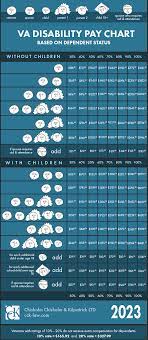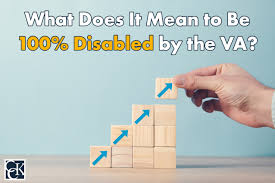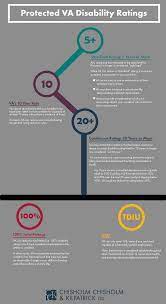Veterans Affairs Disability: Understanding the Benefits and Process
For many veterans, returning to civilian life after serving in the military can be a difficult transition. For those who have been injured or disabled due to their service, navigating the Veterans Affairs (VA) disability system can be overwhelming. However, understanding the benefits and process of VA disability can make a significant difference in the lives of disabled veterans.
What is VA Disability?
VA disability compensation is a tax-free monetary benefit paid to veterans who are disabled as a result of their military service. The amount of compensation depends on the severity of the disability and how it affects the veteran’s ability to work and perform daily activities.
The VA uses a rating system to determine the level of disability, ranging from 0% to 100%. A 0% rating means that there is evidence of a disability, but it does not affect the veteran’s ability to work or perform daily activities. A 100% rating means that the veteran is totally disabled and unable to work or perform daily activities.
The Benefits of VA Disability
VA disability compensation provides financial support for disabled veterans and their families. In addition to monthly payments, eligible veterans may also receive other benefits such as healthcare, vocational rehabilitation, education assistance, and home loan guarantees.
The process for applying for VA disability can be complex and time-consuming. It involves submitting medical records, completing forms, attending medical examinations, and providing evidence of service-connected disabilities. However, with proper documentation and representation by an experienced attorney or advocate, veterans can increase their chances of receiving fair compensation for their disabilities.
How to Apply for VA Disability
To apply for VA disability compensation, veterans must submit an application known as a “claim” with supporting evidence such as medical records and service records. The application can be submitted online through eBenefits or through a local VA office.
Once the claim is received by the VA, it will be reviewed by an adjudicator who will determine the level of disability and the amount of compensation. If the claim is approved, the veteran will receive a monthly payment based on their disability rating.
Conclusion
VA disability compensation is an important benefit that provides financial support for disabled veterans and their families. Understanding the benefits and process of VA disability can help disabled veterans navigate the system and receive fair compensation for their disabilities. If you are a disabled veteran, it is important to seek assistance from an experienced attorney or advocate to ensure that your claim is properly documented and represented.
Your Guide to Veterans Affairs Disability Benefits: 8 Frequently Asked Questions Answered
- How do I apply for veterans affairs disability benefits?
- What types of veterans affairs disability benefits are available?
- How long does it take to receive a decision on my veterans affairs disability claim?
- What documents do I need to provide when applying for veterans affairs disability benefits?
- Are there any restrictions or limitations on the use of veterans affairs disability benefits?
- Can I appeal a denial of my veteran’s affairs disability claim?
- How often will I receive payments for my veteran’s affairs disability benefits?
- Are there any other resources available to help me understand the veterans’ affairs disability process?
How do I apply for veterans affairs disability benefits?
To apply for Veterans Affairs (VA) disability benefits, you can follow these steps:
- Gather your documents: You will need to gather all relevant medical and military service records, including discharge papers, medical treatment records, and any other supporting documentation related to your disability.
- Fill out the application: You can apply for VA disability benefits online through the VA’s eBenefits website or by filling out a paper application (VA Form 21-526EZ) and mailing it to the VA regional office that serves your area.
- Submit your application: Once you have completed the application and gathered all necessary documentation, you can submit it to the VA regional office that serves your area. You can also submit your application in person at a VA regional office or with the help of a Veterans Service Officer.
- Attend any necessary appointments: Depending on your disability claim, you may need to attend a medical exam or other appointments as part of the claims process.
- Wait for a decision: After submitting your application, it may take several months for the VA to review and make a decision on your claim. You will be notified by mail of the decision once it is made.
If you have any questions about applying for VA disability benefits or need assistance with the claims process, you can contact a Veterans Service Officer or an attorney who specializes in veterans’ benefits law for guidance.
What types of veterans affairs disability benefits are available?
There are several types of Veterans Affairs (VA) disability benefits available to eligible veterans who have been injured or disabled as a result of their military service. These benefits include:
- Disability Compensation: This is a tax-free monetary benefit paid to veterans who have a service-connected disability. The amount of compensation depends on the severity of the disability and how it affects the veteran’s ability to work and perform daily activities.
- Dependency and Indemnity Compensation (DIC): This is a tax-free monetary benefit paid to eligible survivors of veterans who died as a result of their military service or from a service-connected disability.
- Special Monthly Compensation (SMC): This is an additional tax-free monetary benefit paid to veterans who have certain severe disabilities, such as loss of use of limbs, blindness, or deafness.
- Pension: This is a tax-free monetary benefit paid to wartime veterans with limited income and assets who are permanently and totally disabled, or over the age of 65.
- Vocational Rehabilitation and Employment (VR&E): This program provides services and assistance to eligible veterans with service-connected disabilities to help them prepare for, find, and keep suitable employment.
- Automobile Allowance: This is a one-time grant paid to eligible veterans with certain severe disabilities that make it difficult for them to operate a vehicle.
- Clothing Allowance: This is an annual payment made to eligible veterans with certain disabilities that require the use of prosthetic or orthopedic devices.
- Home Loan Guaranty: This program provides assistance to eligible veterans in purchasing, building, or improving homes by guaranteeing part of the loan made by private lenders.
These benefits are designed to provide financial support and assistance for disabled veterans and their families. Eligibility for these benefits depends on various factors such as the nature and severity of the disability, length of military service, income level, and other criteria established by the VA. Veterans can apply for these benefits by submitting an application to their local VA office or through the VA’s online portal, eBenefits.
How long does it take to receive a decision on my veterans affairs disability claim?
The processing time for a Veterans Affairs (VA) disability claim can vary depending on several factors, including the complexity of the claim, the availability of evidence and medical records, and the number of claims being processed by the VA at any given time.
According to the VA, the average processing time for a disability claim is currently around 120 days. However, some claims may take longer to process if additional information or evidence is needed to make a decision.
It’s important to note that if your claim is approved, you will receive retroactive payments dating back to when you first filed your claim. This means that even if it takes several months or even years for your claim to be approved, you will still receive back pay for any benefits owed to you from the date of your initial application.
If you have questions about your specific disability claim or would like an update on its status, you can contact the VA directly or work with a Veterans Service Officer (VSO) who can assist you in navigating the process and advocating for your benefits.
What documents do I need to provide when applying for veterans affairs disability benefits?
When applying for Veterans Affairs (VA) disability benefits, you will need to provide several documents to support your claim. The following are some of the most important documents that you should consider providing:
- Military Service Records: You will need to provide your military service records, including your DD Form 214 or Certificate of Release or Discharge from Active Duty. This document provides information about your length of service, discharge status, and any awards or medals you received.
- Medical Records: You should provide any medical records related to the disability for which you are seeking benefits. This can include records from military hospitals, VA medical centers, and private doctors.
- Disability Benefits Questionnaire (DBQ): A DBQ is a form that provides information about your disability and how it affects your ability to work and perform daily activities. You can download a DBQ from the VA website or have a doctor complete one on your behalf.
- Supporting Documents: You should provide any additional documents that support your claim, such as letters from family members or friends who witnessed the injury or illness that led to your disability.
- Financial Information: You may be required to provide financial information such as tax returns, bank statements, and pay stubs to determine if you are eligible for certain benefits.
It is important to note that the VA may request additional documentation during the claims process if necessary. It is also recommended that you keep copies of all documents submitted for your own records in case they are needed in the future.
Are there any restrictions or limitations on the use of veterans affairs disability benefits?
Yes, there are restrictions and limitations on the use of Veterans Affairs (VA) disability benefits.
Firstly, VA disability compensation is intended to provide financial support for veterans who are disabled as a result of their military service. Therefore, the benefits are only available to veterans who have a service-connected disability. The disability must be directly related to the veteran’s military service, and it must have occurred or been aggravated during their time in the military.
Secondly, VA disability compensation is tax-free and is intended to cover the cost of living expenses for disabled veterans and their families. Therefore, it cannot be used for any illegal activities or purposes that are not related to the veteran’s well-being.
Thirdly, there may be limitations on how much a veteran can receive in VA disability compensation depending on their other sources of income. For example, if a veteran is receiving Social Security Disability Insurance (SSDI) or other government benefits, their VA disability compensation may be reduced.
Lastly, there may be restrictions on how veterans can use certain types of VA benefits. For example, education benefits such as the Post-9/11 GI Bill can only be used for approved programs at accredited institutions.
It is important for veterans to understand these restrictions and limitations before they apply for VA disability benefits. Veterans should also seek guidance from an experienced attorney or advocate if they have any questions about how to use their benefits or if they need assistance with their claim.
Can I appeal a denial of my veteran’s affairs disability claim?
Yes, if your Veteran Affairs (VA) disability claim has been denied, you have the right to appeal the decision. The VA recognizes that mistakes can be made during the claims process and provides several options for veterans to appeal a denial.
There are three levels of appeal available to veterans:
- Reconsideration: This is an informal review of your claim by a different claims examiner than the one who initially reviewed your application. You can submit new evidence or information to support your claim during this stage.
- Decision Review Officer (DRO) Review: If you disagree with the outcome of the reconsideration, you can request a DRO review. A DRO is a senior VA official who will conduct an independent review of your case and make a new decision based on all available evidence.
- Board of Veterans’ Appeals (BVA): If you disagree with the DRO’s decision, you can appeal to the BVA. The BVA is an independent body that reviews appeals from veterans who have been denied benefits by the VA.
It’s important to note that each level of appeal has specific deadlines and requirements for submitting evidence and documentation. It’s recommended that you seek assistance from a Veterans Service Organization (VSO) or an experienced attorney who specializes in VA disability claims to ensure that your appeal is properly documented and represented.
In summary, if your VA disability claim has been denied, don’t give up hope. You have the right to appeal the decision and pursue the benefits that you deserve as a veteran.
How often will I receive payments for my veteran’s affairs disability benefits?
The frequency of payments for Veterans Affairs (VA) disability benefits depends on the type of benefit and the payment option you choose.
For disability compensation, which is a tax-free monetary benefit paid to veterans who are disabled as a result of their military service, payments are made monthly. The exact date of payment depends on your assigned VA regional office and can be found on your award letter or through your eBenefits account.
For other benefits such as pension or education assistance, payment frequencies may vary. For example, VA pension payments are typically made on a monthly basis while education assistance payments may be made at the beginning of each semester or quarter.
It is important to note that some veterans may be eligible for expedited processing of their claims, which can result in faster processing times and earlier payment dates. Additionally, veterans who have a severe disability may be eligible for advance payments to help cover expenses while their claim is being processed.
If you have any questions about the frequency or timing of your VA disability payments, it is recommended that you contact your local VA regional office or speak with a Veterans Service Officer for assistance.
Are there any other resources available to help me understand the veterans’ affairs disability process?
Yes, there are several resources available to help you understand the veterans’ affairs disability process. Here are a few:
- VA.gov: The official website of the Department of Veterans Affairs provides information on disability compensation, including eligibility requirements, how to apply, and how the VA determines disability ratings.
- Disabled American Veterans (DAV): DAV is a nonprofit organization that provides free assistance to veterans and their families in applying for VA benefits, including disability compensation. They have trained service officers who can help you navigate the process.
- Veterans Service Organizations (VSOs): There are many VSOs that provide assistance to veterans in accessing their benefits, including disability compensation. Some examples include the American Legion, Veterans of Foreign Wars (VFW), and Vietnam Veterans of America (VVA).
- National Resource Directory: This website provides a directory of resources for wounded warriors, veterans, and their families. It includes information on disability compensation as well as other benefits and services.
- Legal Assistance: If you need legal assistance with your VA disability claim, you may be eligible for free legal representation through organizations such as Legal Services Corporation or your local Legal Aid office.
It’s important to remember that navigating the VA disability process can be complex and overwhelming. Don’t hesitate to seek assistance from these resources or other qualified professionals who can help guide you through the process and ensure that you receive fair compensation for your disabilities.




